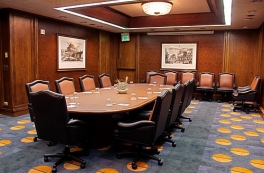Do We Really Need ‘Independent’ Directors on Super Boards?

BELFAST: 5 September 2013 - Superannuation funds are right to be worried about governance. Good governance implies effective and efficient decision-making that has regard for the needs and objectives of stakeholders as well as the full context in which the decisions are being taken. Not surprisingly, then, the Cooper Review spent a lot of time and tax-payers’ money looking at governance. They even recommended that one of the ways to tighten the governance of superannuation funds was to require the trustees of funds to have independent directors, just like listed companies. But are independent directors really the answer?
Consider for a moment: what single factor is common to the most admired firms on the ASX, the NYSE and the London Stock Exchange alike? Not their industry, nor their financial performance. The common factor is their governance. In particular, they all have a healthy collection of independent directors because that is what modern corporate governance theory suggests is required. For the past fifteen years independence has been the gold standard of modern corporate governance. Except that it isn’t, because HIH, Enron and Northern Rock all had independent directors, too. History tells us unequivocally that the presence of independent directors neither guarantees good financial performance nor freedom from scandal.
The reason is simple. The research into group decision-making largely confirms that diversity and independent thinking in groups is a good thing. But the diversity that is valuable is not derived from imposing structural rules about the number of independent directors. Indeed structural rules that force together individuals with disparate values and beliefs can be counter-productive. Those disparate values and beliefs introduce unproductive friction that gets in the way of the trust required to permit the sorts of robust analysis and debate that underpin constructive decision-making processes.
Nor does adding some token women to the mix improve things. It is more than a little insulting that some pundits seem to think that chromosomal differences will engender a wholly independent mindset, or mindsets, capable of averting a repeat of the most recent set of governance failures. And yet that is where the corporate governance ‘best practice’ of recent years has taken us. In countries across the globe, the call has gone out for greater female participation on boards. Independence Plus: a simple, but more likely simplistic, recipe for corporate governance success.
That of course is not to decry such moves entirely. There are many entirely valid reasons; economic, social and ethical, why harnessing the skills and experience of women on boards is important. But those who expect that the mere presence of matching chromosomes to cure the failings of corporate governance are doomed to disappointment. There were after all women on the boards of Northern Rock and Enron (though not HIH).
One reason for this blind grasping at straws is that boardroom processes remain behind closed doors, literally as well as figuratively. Most of the descriptions of boardroom practices, behaviours and dynamics are self-reported or else replicated ‘experimental’ studies undertaken in university studies far from the coalface of actual corporate decision-making. Board minutes, even where available, tell little of the actual processes of deliberation undergone when boards have to take difficult and complex decisions. As a result we have little direct evidence of what makes good boards tick. Only so much can be gleaned by examining the charred remains left by a Williams or a Skilling. But what evidence we do have, accumulated from the laboratory research and supported by anecdotal reports, suggests that ‘task conflict’ is good, ‘relationship conflict’ is bad, and ‘group-think’ is inevitable. That is to say, the respectful contestation of ideas arising from disparate frames of reference, mental models, data sources and experience is good; the friction arising from deep-seated differences in values, preferences and objectives is bad; and the tendency of individuals to become insular and exclusive while striving for internal cohesion and consensus is inevitable.
Structural rules around independence fails on all counts. It doesn’t guarantee, or even promote, task conflict because boards habitually choose people with the same professional training and experience base as themselves; seldom do they choose industry outsiders. So you don’t get the cognitive diversity that comes from different perspectives and experience, you just get more of the same. It also doesn’t address relationship conflict. The injection of ‘new blood’ is forced. Superficial indicators of diversity such as gender or ethnicity can result in ‘token’ appointments. And group-think kicks in as new members of the board seek to address their lack of social capital in this new environment by ‘building bridges’ with the processes and personalities already present in the board. Only thereby do they gain the social efficacy to justify their presence at the board table. So within a few meetings the new members have assumed the social identity of the board they have joined and are as likely to be as over-confident about their joint capabilities, and as blind to their failures, as the directors of longer tenure.
All of which is to say that board governance is not something that can be engineered crudely. The Chair is key to the maintenance of a constructively critical environment in the boardroom. Directors who can engage in independent thinking which challenges and probes management thinking add a vital layer of risk management to the organisation, albeit one that operates at a strategic rather than operational level. Good decision-making, the ultimate criterion on which governance needs to be judged, is not simply a matter of injecting a cadre of independent directors onto trustee boards across the country. Policies that assume that structural independence is a panacea capable of addressing failures in group decision-making are simply a recipe for disappointment.
Professor Wheeler was in Australia to lead a series of industry and academic workshops on Independence and Accountability in Superannuation. The series was jointly supported by Herbert Smith Freehills, the Association of Superannuation Funds of Australia and the Centre for Law Markets and Regulation.


Add new comment